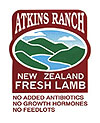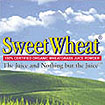|
New project to Improve
Information on Trends in World Fisheries
Activities already under
way in SE Asia - Central America next to
benefit
By
Michael
Hage
Washington
and Rome, 7 June 2005 - A new FAO
project is helping countries around the
world improve their monitoring of fishing
activities, a step the Organization says
is essential for better management of world
fishery resources.
The eight-year "Status and Trends in
Capture Fisheries" (STF) project, managed
by FAO's FishCode Programme, will tackle
one or two regions at a time, eventually
covering the entire globe.
First, FishCode STF teams up with regional
fishery organizations to conduct a detailed
inventory of the systems and methods that
countries use to monitor fisheries and the
kind of information they collect.
Regional workshops then review these inventories
to identify problems -- and the steps necessary
to correct them.
Based on that, second phase project activities
will focus on training programmes tailored
to each region's needs to help countries
strengthen monitoring and data collection.
The entire process could take up to four
years for each region.
More support needed
FishCode STF has already begun work in Southeast
Asia in collaboration with the Southeast
Asian Fisheries Development Center (SEAFDEC);
next on the agenda is Central America and
the Caribbean, with an initial workshop
to review the state of regional fisheries
monitoring systems scheduled for November
2005.
West Africa and the Bay
of Bengal are also priority regions
for the project.
Initial funding for FishCode STF has been
received from Japan, Norway and
the United States, but
additional support is needed.
How many fish, how many fishers?
FAO, as the only repository for global fishing
data, regularly collects a wide range of
fisheries information from over 200 countries
and uses it to produce situation reports
like the recently published State of World
Fisheries and Aquaculture.
Having a clear understanding of the state
of fish stocks, where and how fishing occurs,
the level of fishing capacity that countries
maintain, and the socio-economic contributions
of the sector is essential for responsible
fisheries management.
But many countries, especially resource-strapped
governments in the developing world, have
a difficult time collecting adequate or
complete data on fishing.
For instance, some 33 percent of all catches
in the South West Indian Ocean are not identified
by species, a recent FAO study showed.
Such data gaps make sound management of
fishery resources exceedingly difficult.
"Ensuring that fisheries are sustainable
requires more detailed information, broken
down regionally, by species, by high seas,
and by coastal versus inland catches,"
explained FAO's Gertjan de Graaf, who coordinates
the FishCode STF project.
Improving world fisheries information is
a step called for by FAO's Code of Conduct
for Responsible Fisheries, and in 2003 FAO
published a Strategy for Improving Information
on Status and Trends in Capture Fisheries
to point the way forward.

Links:
FishCode STF
Project:
http://www.fao.org/figis/servlet/static?xml=STF_proj.xml&dom=org
FAO
NEWS RELEASE
Contact: Michael Hage- Regional Information
Officer, FAO
(202) 653-0011
michael.hage@fao.org
|
















